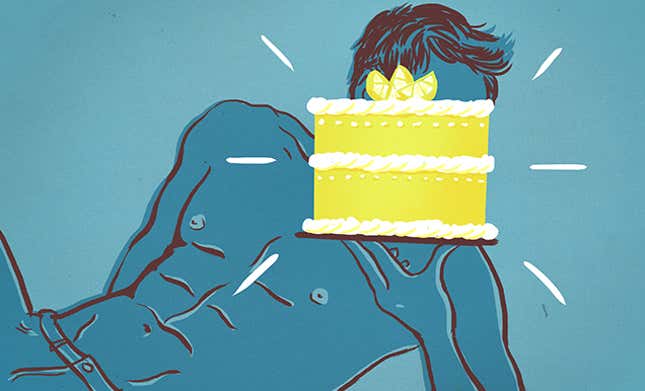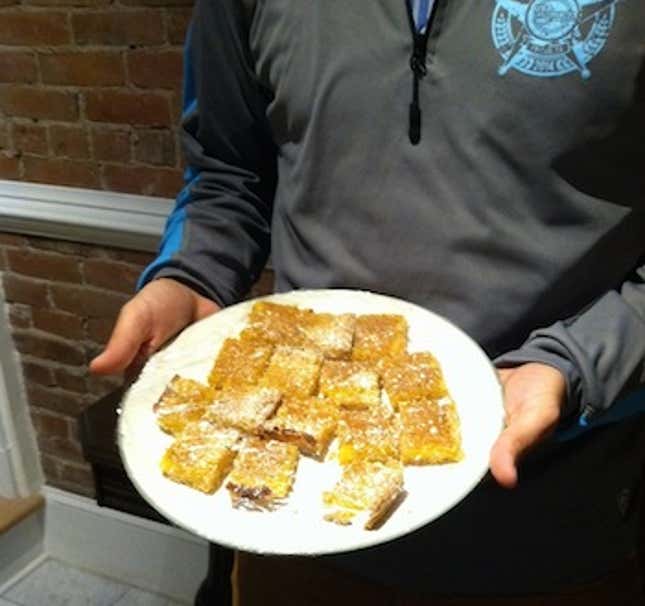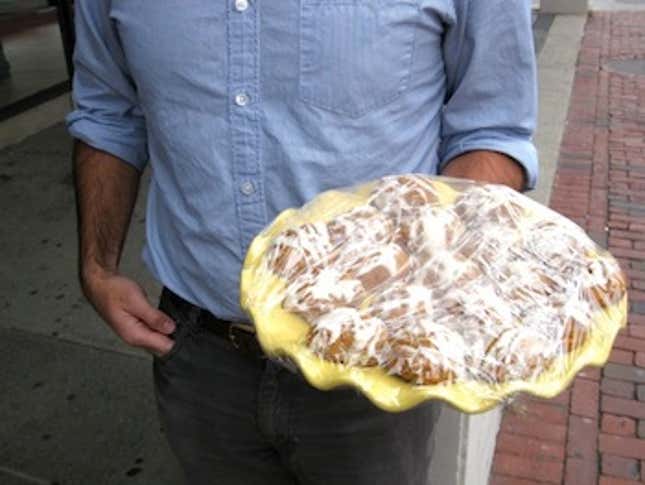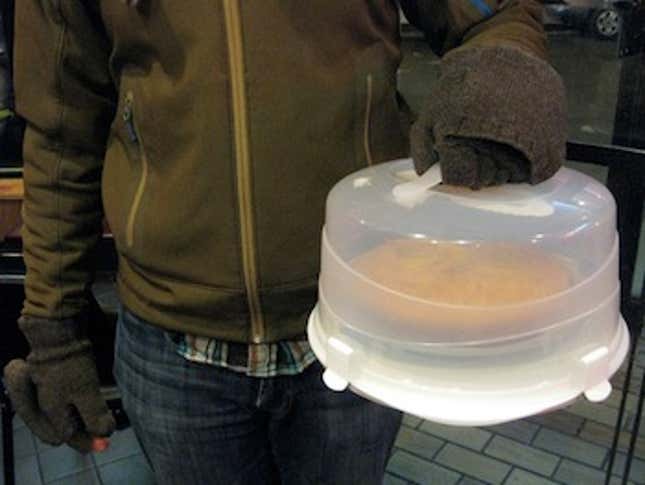The Lemon Cake Male Objectification Experiment
Latest

As someone who likes to bake and doesn’t own a car, I have schlepped a lot of cakes on a lot of trains. I’ve maneuvered pies over subway turnstiles and Tupperwares between strangers’ elbows. What was unusual about this one lemon cake was that I wasn’t carrying it—and that’s where this experiment was born.
My husband and I were going to our friends’ house for dinner, two trains and a bus ride away. I had volunteered to bring dessert and now I foisted it off on him for the long trip. As we changed trains at a crowded platform in downtown Boston, all eyes seemed to be on Doug and the lemon cake. He ducked his head and hurried past the stares until we reached the farthest, emptiest part of the subway platform, where we stopped. He said, “Is this what it’s like to be an attractive woman?”
I laughed but I also started wondering: is it? Sometimes it seems like he and I walk around in two different worlds. By simply toting something delicious-looking, can men get a taste of the constant public observation that women experience?
I began recruiting my subjects.

This experiment would not be scientific. There would be no control group and no statistics. But I did have a hypothesis. I also had five subjects, local male friends who are good sports (and who would get to eat the baked goods afterward). I chose men with female significant others, so that they could offer their own perspectives on a woman’s experience in public.
I whipped up some treats: chocolate cupcakes, lemon squares, a giant batch of iced pumpkin cookies, and of course the inspirational lemon cake. After packing them in Saran wrap or a clear plastic carrier, I dropped the goods off with my subjects. I asked them to spend some time carrying their treats on public transit or on their daily commutes—and to pay attention.
All my subjects live in Cambridge. Some carried their treats on the bus or the train, and others walked, either in the morning or the evening. A few of the men made trips out of their way to give the experiment extra time.
For some perspective on the question of people in the public eye, I called Sarah Gervais, a psychologist at the University of Nebraska, Lincoln, who studies dynamics of power and prejudice between men and women. She’s especially interested in staring, or what she calls the “objectifying gaze.” In one recent study, for example, she used eye-tracking technology to learn how men look at women with different body types.
“What we know about this kind of public gazing is that it has really negative consequences for women,” Gervais told me.
-

-

-

-

-

-

-

-

-

-

-

-

-

-

-

-

-

-

-

-

-

-

-

-

-

-

-

-

-

-

-

-

-

-

-

-

-

-

-

-












































